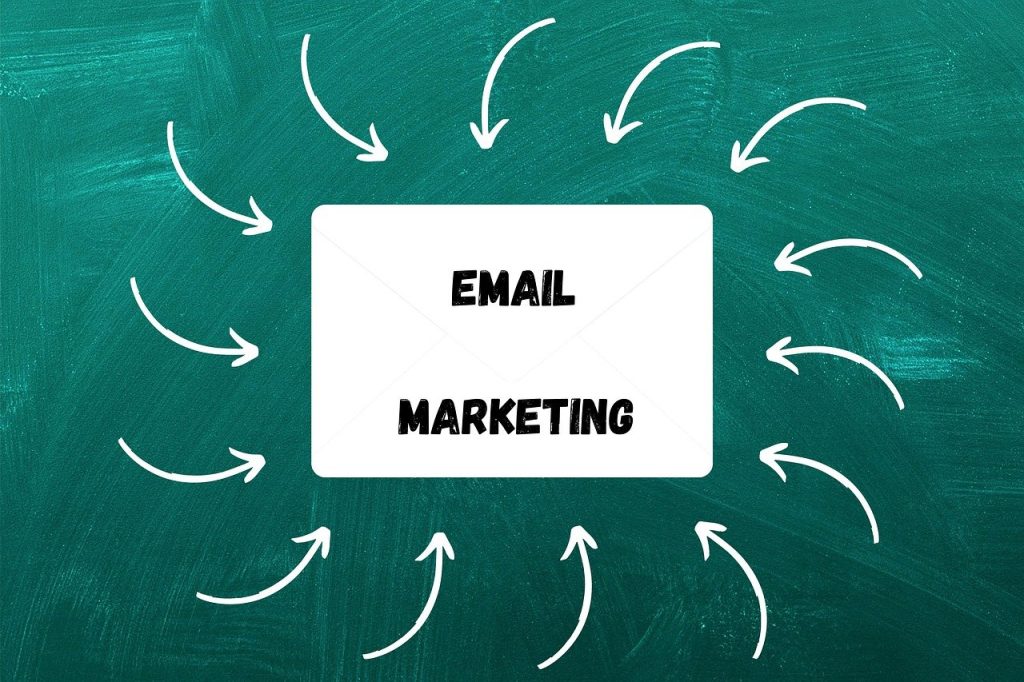In today’s fast-paced and highly competitive business environment, it is imperative for businesses to adopt effective marketing strategies to stay ahead of the curve. Among the plethora of strategies available, three stand out as particularly powerful: email marketing, digital marketing, and search engine optimization (SEO). Each of these strategies offers unique advantages, and when combined, they can drive significant growth and success. This article explores why businesses need to implement these market strategies and how they can leverage them for maximum impact.
The Power of Email Marketing

Personalized Communication
Email marketing allows businesses to establish direct and personalized communication with their audience. Unlike other forms of marketing, email marketing enables businesses to segment their audience based on various criteria such as demographics, purchase history, and engagement levels. This segmentation allows for highly targeted campaigns, ensuring that the right message reaches the right person at the right time.
Personalized emails have been shown to increase open rates, click-through rates, and overall engagement. By addressing customers by their names and offering content tailored to their interests and needs, businesses can foster stronger relationships and build customer loyalty.
Cost-Effective and High ROI
One of the most significant advantages of email marketing is its cost-effectiveness. Compared to traditional marketing methods such as print advertising or direct mail, email marketing is relatively inexpensive. The costs associated with designing and sending emails are minimal, making it an attractive option for businesses of all sizes.
Moreover, email marketing consistently delivers a high return on investment (ROI). According to various studies, the ROI for email marketing can be as high as $42 for every dollar spent. This impressive ROI underscores the importance of incorporating email marketing into a business’s overall marketing strategy.
Measurable Results
Email marketing provides businesses with valuable insights and data that can be used to refine and optimize campaigns. Metrics such as open rates, click-through rates, conversion rates, and unsubscribe rates offer a clear picture of how recipients are interacting with emails. By analyzing these metrics, businesses can identify what is working and what needs improvement, allowing for continuous optimization and better results over time.
Embracing Digital Marketing
Expanding Reach and Visibility
Digital marketing encompasses a wide range of online marketing tactics, including social media marketing, content marketing, pay-per-click (PPC) advertising, and more. One of the primary benefits of digital marketing is its ability to reach a vast and diverse audience. With billions of people using the internet and social media platforms daily, businesses have the opportunity to expand their reach and increase brand visibility on a global scale.
Targeted Advertising
Digital marketing allows for highly targeted advertising. Platforms like Google Ads and social media networks offer advanced targeting options that enable businesses to reach specific audiences based on factors such as age, location, interests, and online behavior. This precise targeting ensures that marketing messages are delivered to the most relevant audience, increasing the likelihood of engagement and conversions.
Building Brand Authority
Content marketing, a key component of digital marketing, involves creating and distributing valuable, relevant, and consistent content to attract and engage a target audience. By producing high-quality content such as blog posts, articles, videos, and infographics, businesses can establish themselves as industry authorities and thought leaders.
Consistent and valuable content not only builds trust with the audience but also improves search engine rankings. Search engines like Google reward websites that regularly publish high-quality content, making content marketing an essential part of a successful digital marketing strategy.
Engaging with the Audience
Social media platforms provide businesses with an unparalleled opportunity to engage with their audience in real time. By actively participating in conversations, responding to comments and messages, and sharing valuable content, businesses can foster a sense of community and build strong relationships with their customers.
Engaging with the audience on social media also allows businesses to gather feedback, gain insights into customer preferences, and address any concerns or issues promptly. This direct interaction helps businesses build brand loyalty and improve customer satisfaction.
The Importance of Search Engine Optimization (SEO)
Increasing Organic Visibility
Search engine optimization (SEO) is the process of optimizing a website to improve its visibility on search engine results pages (SERPs). When done correctly, SEO can significantly increase organic (non-paid) traffic to a website. With the majority of online experiences beginning with a search engine query, achieving high rankings on SERPs is crucial for driving traffic and attracting potential customers.
Enhancing User Experience
SEO is not just about optimizing for search engines; it is also about enhancing the user experience. Factors such as website speed, mobile-friendliness, easy navigation, and high-quality content all contribute to a positive user experience. Search engines prioritize websites that offer a seamless and enjoyable experience to users, so focusing on these aspects can improve both SEO rankings and user satisfaction.
Building Credibility and Trust
Websites that rank high on search engine results are often perceived as more credible and trustworthy by users. By consistently appearing at the top of SERPs for relevant keywords, businesses can build a strong online presence and establish themselves as leaders in their industry.
SEO also involves optimizing for local search, which is particularly important for businesses with a physical presence. Local SEO helps businesses appear in local search results, making it easier for potential customers to find and visit their physical locations.
Long-Term Benefits
Unlike paid advertising, which stops generating traffic once the budget is exhausted, SEO provides long-term benefits. While it may take time to see significant results, the efforts put into SEO can continue to drive traffic and generate leads for months or even years. This long-term sustainability makes SEO a valuable investment for businesses looking to achieve lasting success.
Integrating Email Marketing, Digital Marketing, and SEO
Creating a Cohesive Strategy
To maximize the impact of email marketing, digital marketing, and SEO, businesses should integrate these strategies into a cohesive marketing plan. Each of these strategies complements the others, creating a synergistic effect that drives better results.
For example, SEO can drive organic traffic to a website, where visitors can then be encouraged to subscribe to an email list. Email marketing can nurture these leads, providing valuable content and offers that encourage conversions. Digital marketing tactics such as social media and PPC advertising can further amplify reach and visibility, driving more traffic to the website and email list.
Consistent Branding and Messaging
Consistency is key when integrating multiple marketing strategies. Businesses should ensure that their branding and messaging are consistent across all channels. This consistency helps build brand recognition and reinforces the brand’s identity in the minds of the audience.
Data-Driven Decision Making
One of the greatest advantages of digital marketing, email marketing, and SEO is the abundance of data they provide. By leveraging analytics and data insights, businesses can make informed decisions and continuously optimize their marketing efforts.
Staying Agile and Adaptive
The digital landscape is constantly evolving, with new technologies, trends, and algorithms emerging regularly. To stay competitive, businesses must remain agile and adaptive, continually monitoring the performance of their marketing strategies and making necessary adjustments.
Conclusion
In conclusion, email marketing, digital marketing, and search engine optimization are essential strategies that businesses need to implement to thrive in today’s competitive market. Each of these strategies offers unique benefits, from personalized communication and cost-effectiveness to expanding reach and enhancing credibility. By integrating these strategies into a cohesive and data-driven marketing plan, businesses can drive significant growth, build strong customer relationships, and achieve long-term success. Whether you are a small business owner or a marketing professional, embracing these market strategies will position your business for success in the digital age.


